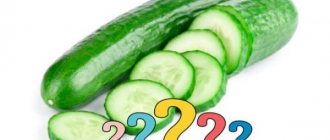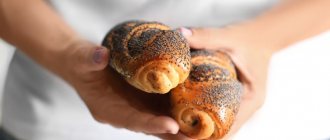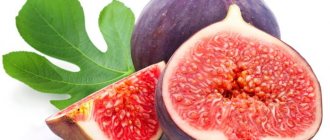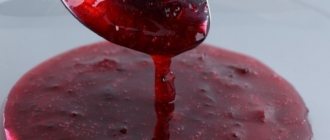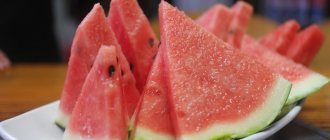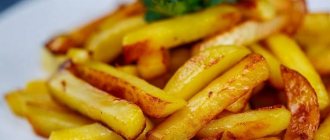If a woman is breastfeeding her baby, then she must follow all the recommendations of her doctor and follow a diet. This will prevent tummy problems in the newborn and the possible occurrence of allergies. Despite this, a nursing mother's diet should be varied and tasty in order to continue lactation longer. It is important that her diet contains the necessary vitamins and minerals. Experts recommend constantly including first courses in the menu, but are they all suitable for the mother and child during this period? Is it possible to have pea soup while breastfeeding?
The benefits of green peas
The main ingredient of pea soup is green peas. It has a useful composition.
Peas are rich in the following substances:
- It contains a lot of lysine. It has an anti-inflammatory effect. It improves immunity. Thanks to lysine, normal absorption of calcium occurs, which is especially important for the bodies of women and children.
- Cystine. It has a positive effect on lactation by stimulating the production of oxytocin.
- Vitamin B6. It takes part in the metabolism of amino acids. A lack of vitamin B6 manifests itself in the form of dry skin, dermatitis, sticky lips and bruises under the eyes.
- Selenium. It strengthens the immune system and overall human health.
- Protein. Peas, like other legumes, contain a lot of protein. In terms of the amount of protein, it is close to meat.
In addition, peas are rich in vitamins A, C, H, as well as minerals (phosphorus, magnesium, iron, sulfur, etc.).
Regular use of the product improves the condition of hair and skin, and also reduces the risk of heart and vascular diseases.
So is it possible to have pea soup while breastfeeding? By the way, you can also find canned peas on store shelves. However, such a product is undesirable for nursing mothers. It is best to consume fresh peas by preparing soups and other dishes from them.
Composition and benefits of peas for breastfeeding
The main benefit of peas is the presence of vegetable protein in its composition. The composition of this type of protein is similar to its animal counterpart. All legumes are also sources of beneficial fiber and other essential nutrients [1]:
- Fat-soluble vitamin E, B vitamins, folic acid.
- Potassium and sodium, which maintain electrolyte balance in the body.
- Phosphorus is a microelement necessary for the formation of bone tissue and for maintaining energy balance.
- Iodine is a component responsible for the functioning of the thyroid gland.
- Selenium is the most important antioxidant and antioxidant.
- Iron is an element necessary for hematopoiesis, namely for the formation of red blood cells (erythrocytes).
- Calcium is a microelement necessary for the health of the musculoskeletal system and teeth.
The following amino acids are present in peas:
- cystine is a building element of insulin and many protein compounds responsible for immunity;
- methionine - not synthesized by the human body, plays the role of a hepatoprotector, and is also a building material for many protein structures;
- tryptophan – necessary for regulating the processes of sleep and wakefulness; for the synthesis of serotonin, the “happiness hormone”;
- lysine – participates in regenerative reactions, supports the immune system, and participates in collagen synthesis.
Truth and fiction about peas
Despite the positive composition of legumes, they are perceived ambiguously by the population of the country. Many people are afraid to eat peas due to possible stomach upset and increased gas formation. Women during lactation are also afraid of this.
Is it possible to have pea soup while breastfeeding? It can and should be consumed, so the myths about the main product will be dispelled below:
- Peas are very high in calories. This is wrong. 100 g of peas contains only 60 kcal, so you can eat dishes made from them without damaging your figure.
- Peas increase increased gas formation. This statement is true, because the product contains plant proteins that are not completely broken down by the body. This leads to pain and cramps in the stomach.
- Are boiled peas and breastfeeding incompatible? This statement is completely wrong. After all, peas contain cystine, which promotes milk production.
Therefore, not all statements regarding green peas are true. After all, it contains many useful substances that have a positive effect on the organisms of mother and child.
Is it possible to eat sorrel soup while breastfeeding?
For every breastfeeding woman, the issue of nutrition is very relevant, because the baby’s health directly depends on the mother’s well-being.
Sorrel soup is useful during breastfeeding, since eating greens has a positive effect on lactation and replenishes the supply of nutrients. However, this medicinal plant can cause an allergic reaction, so it is worth familiarizing yourself with its beneficial and not so beneficial properties.
Sorrel: beneficial properties and composition
After the long and cold winter months, every person’s body needs to replenish the deficiency of vitamins and minerals, especially for nursing women. Early spring plants come to the rescue, thanks to which you can diversify your diet and replenish your supply of nutrients.
Sorrel is a low-calorie plant with a characteristic sour taste. Widely used in cooking for making soups, side dishes, salads and pies.
- Since ancient times, the healing properties of sorrel have been widely used to treat a variety of colds, bronchitis and whooping cough.
- It helps quite well with allergic diseases, relieves itching and soothes irritated skin.
- Sorrel leaves have wound-healing, astringent, analgesic and choleretic properties.
- Also, this medicinal plant is known for its antiscorbutic effect.
- Due to its bactericidal capabilities, sorrel is included in antibacterial drugs.
Chemical composition of sorrel
The composition of sorrel leaves includes:
- Vitamins (C, group B, PP);
- Organic acids (malic, citric);
- Microelements (Mg, Ca, Fe, K);
- Mineral salts;
- Tannins;
- Sugar;
- Carotene;
- Flavonoids;
- Essential oils.
In folk medicine, sorrel is used as an antitumor agent. Thanks to its antioxidant properties, it is possible to quickly cleanse and restore the body.
Sorrel soup during lactation: benefit or harm?
Sorrel soup during breastfeeding is the favorite first dish of many mothers. This soup satisfies well and at the same time has a low calorie content.
With regular consumption of sorrel, including by mothers during lactation, you can:
- increase the body's protective properties;
- normalize lipid metabolism;
- restore the functioning of the nervous system;
- improve muscle tone;
- remove excess cholesterol from the body;
- increase hemoglobin in the blood;
- strengthen blood vessels and increase their elasticity;
- improve intestinal motility;
- remove free radicals from the blood;
- the plant has a choleretic effect;
- sorrel suppresses the development of putrefactive bacteria;
- successfully used in gynecology, used in the treatment of infertility.
Contraindications for drinking sorrel soup
Despite all the positive properties of sorrel, if consumed in excess, this beneficial plant can be harmful to health.
It is forbidden to use sorrel:
- For problems with the genitourinary system (salts, kidney stones);
- For diseases of the gastrointestinal tract (in the acute stage, the presence of ulcers);
- Patients with pancreatitis;
- For gout;
- People with impaired water-salt metabolism.
Consumption of sorrel leaves while breastfeeding
We have already found out whether it is possible to have sorrel soup while breastfeeding. If a nursing woman does not have an individual intolerance to this plant, then it is worth including it in her diet. However, an allergic reaction may occur in the baby. Then a nursing mother should stop eating these healthy leaves with a sour taste.
Symptoms in a child indicating an allergic reaction:
- stomach ache;
- increased gas formation;
- sneezing and watery eyes;
- rash or redness on the skin;
- itching
During lactation, women who eat sorrel should adhere to certain rules:
- Wash the leaves well before use;
- consume no more than 1-2 times a week;
- Do not use wild sorrel for cooking.
To prevent increased gas formation and colic in the baby, it is better for young mothers to use heat-treated sorrel. In this case, sorrel soup is best suited.
Sorrel leaves, like root vegetables, very well accumulate harmful substances that are used in the process of growing plants. To avoid getting chemicals on your table, you need to purchase products from trusted retail outlets.
Taking into account all the above points, we can conclude that sorrel leaves are useful during lactation, both for the nursing mother and for the baby. To avoid allergic reactions, monitor your child’s condition and do not consume it in excess. By following these simple rules, you can protect yourself from unforeseen situations and diversify your diet.
When can you add peas to your diet?
Peas rarely cause allergic reactions. Therefore, its main disadvantage is the following: flatulence and bloating. In babies, this leads to intestinal colic.
Therefore, it is not recommended to consume pea soup while breastfeeding immediately after the birth of the baby. This can be done after the child is 3 months old.
If the baby responds normally to pea soup, then it can be introduced into the diet on an ongoing basis.
When can I have pea soup during breastfeeding? Some women ate the dish when their baby was only 2-3 months old, and no negative symptoms were detected. It all depends on the individual characteristics of the child’s body.
Mothers of a newborn who constantly suffers from colic should not consume pea soup until 4 months. Better yet, postpone this dish until six months.
And if the baby is completely healthy, then a nursing mother can try pea soup at 2-3 months.
Pea porridge: how to correctly introduce it into the menu of a nursing mother
Contrary to popular belief that peas cause increased gas production and can cause colic in a baby, this is not the case.
Of course, you shouldn’t immediately eat a portion of porridge; first you need to “introduce” the child’s stomach to a new dish.
If after three days the mother does not notice that the baby has a tummy ache, increased gas formation, or has problems with bowel movements, then you can continue to eat pea porridge, starting with 150 ml and gradually increasing to a whole portion. My mother should eat pea porridge no more than twice a week.
The ban on legumes applies only to canned peas, since harmful preservatives and food additives are added to increase their shelf life.
Sometimes peas can cause food allergies in infants, but this happens very rarely, so the baby’s reaction to the product must be carefully monitored.
Breastfeeding women, especially in the first months after childbirth, are very careful about their diet. This is due to the fact that all babies suffer from colic and tummy cramps. Everyone knows that legumes can cause gas in an adult. But whether a nursing mother can have pea soup so as not to harm the baby, we need to figure it out.
I would like to immediately note that in the first two months after the birth of a child, a woman should have a strict diet, during which she eats only boiled and steamed food. Many foods are prohibited: fried foods, pickles, chocolate, legumes, carbonated drinks and much more.
Why can I have pea soup?
But after a two-month diet, a nursing mother can have pea soup, and nutritionists explain why. The fact is that any food that enters our body contains proteins, fats and carbohydrates. Plant proteins contained in peas, after entering the human body, are broken down into amino acids. From them protein is created, which is characteristic of human digestion. It is very specific and is not absorbed by the body, but remains in the intestines. Then it disintegrates, and as a result - gas formation and discomfort. The protein does not enter the blood, which means it cannot be in breast milk.
How to introduce a child to soup?
If you still have doubts and don’t know whether you can eat pea soup, like a nursing mother, so that everything is in order with the baby’s tummy, then start small. Introduce a very small portion of soup into your diet, literally 2-3 tablespoons, and look at the child’s reaction. If he has no negative reactions during the day, then you can gradually increase the daily portion to 150 ml. Although it is worth noting here that doctors recommend eating this first dish no more than 2 times a week. It is also worth noting that it is better to cook the first course from dried peas, because... it is digested by the body more easily than fresh peas, and without any particular undesirable issues.
So, a nursing mother can eat pea soup only two months after giving birth, without adding any smoked meats to the dish.
Recipe for creamy pea soup for a nursing woman.
It is no secret that a complete diet consists of first courses, which are necessary for the normal functioning of the digestive system.
After childbirth, such recipes are especially useful, because they help regulate bowel movements and even prevent constipation - but can a nursing mother have pea soup? Before trying the first dish with legumes, it is better to first read the recommendations of doctors so as not to harm your baby!
After the birth of a child, every mother is forced to listen to the advice of a pediatrician. Thus, the menu when breastfeeding a newborn is not very extensive - you have to refuse even seemingly harmless treats.
Pea soup itself does not pose any danger to the mother's body. Usually its recipe includes natural and healthy ingredients - meat and vegetables
But when it comes to the nutrition of a nursing woman, everything changes dramatically - here it is already important to think about the child’s body and his calm tummy
It turns out that most products after childbirth are prohibited not because they pose such a danger to the health of the baby
It’s just important to play it safe and not irritate the newborn’s sensitive ventricle so that he is not tormented by intestinal colic and gases
Pea soup is exactly the kind of dish that a nursing mother should not try in the first months after the baby is born. Peas are a product that is difficult to digest, and therefore, when it is digested, flatulence and abdominal pain can develop. Naturally, this is a potential risk for an infant. Because newborns can react acutely even to very safe products.
Rules for eating pea soup
With hepatitis B there are the following subtleties:
- For the first time, a woman can try 1 teaspoon of boiled peas.
- It is necessary to monitor the baby’s behavior for two days. Does his tummy hurt or is he constipated? Any of these symptoms will indicate the need to completely abstain from peas before the baby is 6 months old. If no negative reaction occurs, then you can eat boiled peas for a week, gradually increasing the portion. Then you can move on to eating soup.
- The dish is best prepared from dry peas, since fresh ones are much less digestible by the stomach.
- For the first time, the concentration of the product should not be high.
- Under no circumstances should you add smoked meats to the soup.
- If the baby feels normal, then during breastfeeding the dish can be consumed 1-2 times a week.
After the baby is 6 months old, fresh peas are allowed to be introduced, and after 7-8 months - canned peas.
Are boiled peas harmful during lactation?
This article talks about typical ways to solve your issues, but each case is unique! If you want to find out from me how to solve your particular problem, ask your question. It's fast and free
The uniqueness of boiled peas lies in the fact that during heat treatment the beneficial substances remain in them almost completely. In terms of nutritional value, it competes with buckwheat and rice. When boiled, it is an excellent supplier of carbohydrates - a storehouse of energy for humans.
It is very important for a nursing mother to receive vitality from healthy sources.
There is an opinion that peas can cause colic in a baby. We hasten to assure you that it is erroneous. The mechanism of the appearance of colic in infants has not yet been clarified, and the reason for it clearly lies deeper than the food preferences of the nursing mother. Increased flatulence is also very unlikely in a child. A slight increase in gas formation may occur in a nursing woman. It is so insignificant that you should not give up eating legumes, given the colossal supply of nutrients that the mother’s body will receive.
The second most common concern is food allergies. It is extremely rare on peas in infants. However, it should be introduced gradually, like any other product into the diet during lactation, carefully monitoring the child’s reaction.
How to cook pea soup correctly
All dishes that a woman consumes during lactation should be dietary, light, and consist entirely of healthy foods.
When can I have pea soup while breastfeeding? The dish can be prepared if the child’s body tolerates it normally.
When preparing pea soup, you should avoid frying it in vegetable oil, and for the broth it is best to use turkey, chicken or beef. It is strictly forbidden to add seasonings and spices to the dish, with the exception of salt and herbs.
Recipe for soup for breastfeeding
If the baby is 3 months old, then it’s time for the nursing mother to try pea soup. There are a lot of accessible and healthy recipes.
Is it possible to have pea soup during breastfeeding? Only after the baby is 3 or more months old will a woman be able to try this dish. To do this, you need to take the following ingredients: dry peas (200 g), 500 g chicken breast, 4-5 potatoes, 1 carrot and 1 onion, 3 liters of water, salt, bay leaf.
You need to soak the peas overnight. In the morning, drain the liquid, put on fire and add a liter of water. Cook the peas until tender - 40-60 minutes.
At this time, cook the broth in 2 liters of water. Remove the meat and chop it. Cut the peeled potatoes into cubes, chop the onions and carrots. Add all the vegetables along with the peas to the broth. Add salt and cook until done. At the end, the dish can be turned into puree soup using a blender.
Can a nursing mother have pea soup?
Peas are a food that can increase bloating and flatulence.
If you have a reaction to peas, a feeling of heaviness in the stomach or pain, then it is better to temporarily give up soups with peas.
The components of soups will not be directly passed on to the child, but in practice it often happens that if the mother has a negative reaction to the product, then the baby also shows the same reaction.
With all this, you should not ignore the fact that any organism is individual, for example, if after eating peas you do not experience changes in the functioning of your digestion and intestines, then there is a huge probability that the same reaction to this product will also occur in your body. your little one.
If we talk about general recommendations for eating peas, they will be as follows:
- It is not recommended for a nursing mother to consume peas until the baby is 1-2 months old;
- The first single dose of use should be 1-2 tsp. boiled or steamed peas;
- in the absence of undesirable reactions in mother and baby, you can try to include pea soup in the menu, observing the proportion: 10 peas per 2 liters of water or no more than 80 ml of soup;
- after drinking pea soup for 24 hours, it is necessary to monitor the child’s reaction: frequency and nature of bowel movements, gas formation, the presence of colic;
- If your baby feels great after eating pea soup, feel free to add it to your menu.
Remember that when breastfeeding it is better to consume soups made from dry peas, as this reduces the likelihood of changes in the functioning of your intestinal tract.

